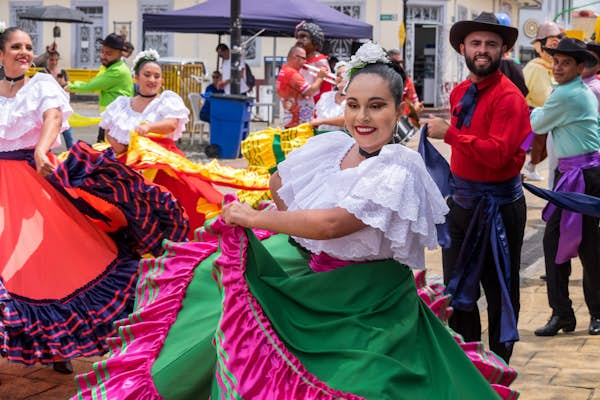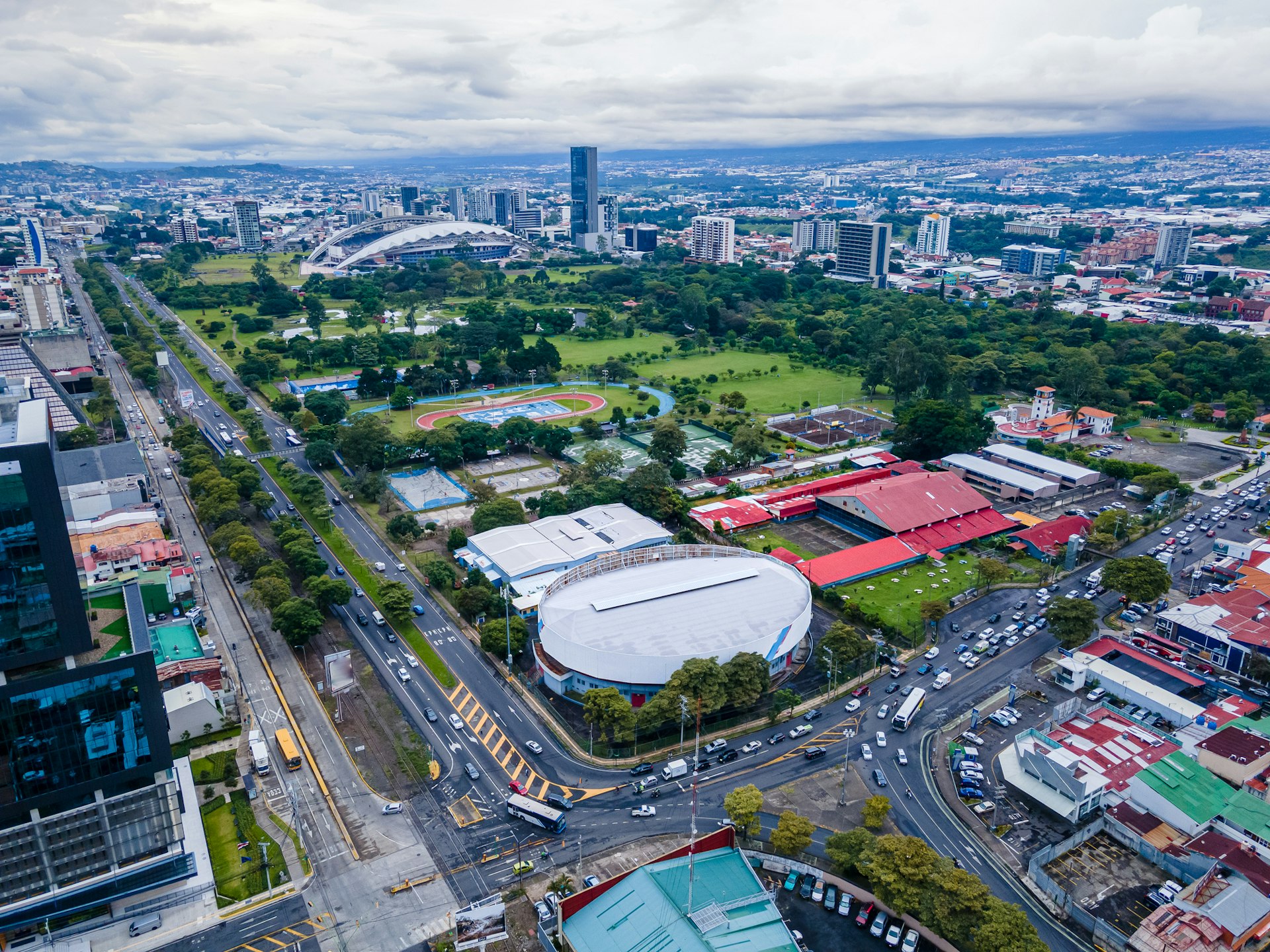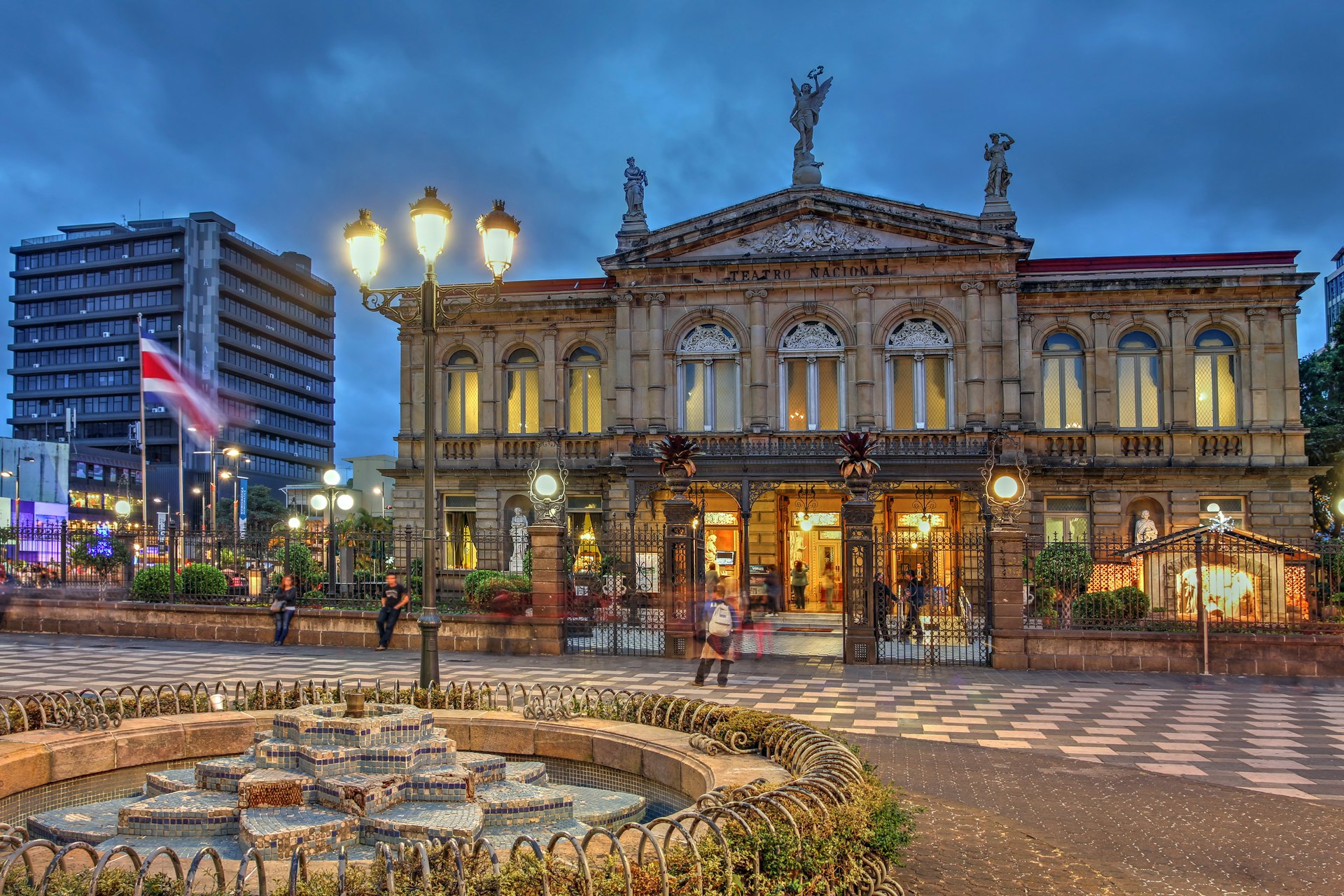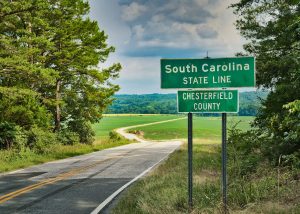
For travelers, Costa Rica’s capital has two great advantages: it’s not too big and nearly all of the major sights are located in the middle of town. Oh, and there’s a third: many of its highlights are free to visit. So if you’re saving your cents for canopy tours and scuba lessons, San José makes for a budget-friendly pit-stop. It’s also a nexus of Tico history and culture.
Thousands of travelers to Costa Rica spend their first days in San José, where they orient themselves and hash out itineraries. But don’t waste your time here just planning to travel beyond it – there is a wealth of museums, public spaces and tiendas for window-shopping, all within walking distance of downtown hotels. The city may not be the prettiest you’ll ever see, but you’ll be surprised how many experiences there are to enjoy, and all without spending a single colón.
Immerse yourself in the best experiences the world has to offer with our email newsletter delivered weekly into your inbox.
1. Stroll the Avenidas
The heart of San José is Avenida Central, a mile-long pedestrian corridor. Here you’ll see block after block of shops and fast-food eateries, plus an army of touts selling knickknacks on the brick walkway. This is a great place to people-watch, nibble an empanada or find yourself a cheap SIM card. It’s also a magnet for scammers and panhandlers, so be on the lookout.
San José has two other pedestrian walkways as well: Avenida 4, which is wider and less crowded, and Calle 9, a quiet street that runs through the old Chinatown neighborhood. Along these routes, you can avoid the capital’s madcap motor traffic and acclimate to its busy atmosphere.
Local tip: The city is full of little parks and squares, from the statue-studded grandeur of the Parque Nacional to the modernist terraces of the Plaza de la Democracía. These spaces offer a scenic escape from the urban hubbub, not to mention benches for resting your tired feet.
2. Browse the markets
The Mercado Central is an indoor bazaar packed with hundreds of stalls, but you don’t have to buy anything to enjoy this shaded labyrinth. Customers have purchased gifts and groceries within these orange walls since 1880, although these days the vendors mostly hawk coffee mugs and “Pura Vida” T-shirts. The main entrance is easy to find, right off of Avenida Central.
Not far from there stands the Mercado Municipal de Artesanías, a similar structure full of artists’ stands. Most of the items here are mass-market souvenirs, but you’ll find some great bargains among the colorful racks, and many crafted items are genuinely “artisanal.”
Local tip: Each Saturday morning, people flock to the Parque Polideportivo in the neighborhood of Aranjuez to buy fresh veggies from local farmers at the Feria Verde. This outdoor market is open to all, and you can almost always find handicrafts and live music among the stalls.
 La Sabana is a hub for free outdoor activities in San José © Getty Images / iStockphoto
La Sabana is a hub for free outdoor activities in San José © Getty Images / iStockphoto
3. Take some time out at Parque Metropolitano La Sabana
The greatest gift to San José is La Sabana, a rectangular green space just west of downtown. Formerly an airport, the runways have been converted into lawns, woods and athletic facilities. People come from all over the city to run laps along its many paths or picnic by its small lake. Join a pickup game of football or hit the court with amateur volleyball players, all free of charge.
Looming above it all is the Estadio Nacional, the largest and most modern sports complex in Central America. Nearly all the tournaments and cultural events in the stadium are ticketed, but you can admire the architecture anytime you like, and game days are nearly as exciting outside of the stadium as in the stands.
4. Take in San Jose’s art scene
Artists live all over Costa Rica, but for high-brow and experimental work, San José is the reigning champion. You can find open art exhibits any week of the year, and many of the galleries are free.
The most distinguished venue is the Museo de Arte Costarricense, the former airport terminal at La Sabana Park. It’s worth visiting for the vintage Spanish architecture alone, but you may also enjoy the rotating displays of paintings and sculptures.
In the quaint neighborhood of Barrio Amón, you’ll find the avant-garde gallery TEOR/ética, which is housed in an antique house and has a façade that is perpetually repainted. Up the hill, Galería Talentum occupies the second floor of a converted mansion. The first-floor restaurant is a perfect spot for lunch if you fancy a bite, but you can climb the staircase to peruse Talentum’s many exhibition rooms for free.
 Wander through the architectural beauty of the Teatro Nacional © Mihai-Bogdan Lazar / Shutterstock
Wander through the architectural beauty of the Teatro Nacional © Mihai-Bogdan Lazar / Shutterstock
5. Tour the Teatro Nacional
One of the most beautiful structures in Costa Rica is the Teatro Nacional, a 1140-seat auditorium first completed in 1897. The theater is still quite active, hosting operas, symphonies and ballets, but visiting this venue is free during the day. Browse the on-site museum, grab a gourmet coffee from the lobby bistro or just admire the ornate statues that decorate the roof.
6. Bike the ciclovía (bike network)
One of the most recent additions to the San José cityscape is its bike network, or “ciclovia.” These painted bike lanes start near La Sabana Park and meander through downtown, Barrio Escalante and all the way to San Pedro. Note that San José is still quite hilly, and drivers don’t like to share the narrow roads, but if you can find yourself a bike, you can explore a dozen neighborhoods in a single afternoon.
Local tip: Connect with the ChepeCletas, an energetic grassroots organization dedicated to promoting urban cycling. They hold group rides through the streets of San José, tours for visitors and can even loan you a bicycle.
7. Go to church
Every town and barrio in Costa Rica has its own Catholic church, and many are resplendent. The spiritual anchor point of San José is the Catedral Metropolitana, a massive church overlooking the crowds of the Parque Central. You can walk right in and admire the vaulted ceilings completed in the 1870s.
A few blocks down, you can see the medieval-looking Iglesia de la Merced, whose red steeple rises over a smaller park and well-trafficked bus stop. Go back east and you’ll see the bold red dome of Santa Teresita; this basilica only dates back to the 1940s, but the architecture has an understated beauty and it marks the edge of Barrio Escalante.
Local tip: If you happen to be in town around Easter, the procesiones are a sight to behold. Costumed performers reenact the Passion story in the streets of San José, complete with a weeping Virgin Mary and a crucifixion scene in the Parque Central.
Costa Rica for solo travellers
8. Study the city’s cultural institutions
One of the most unique parts of San José is its diversity, and it’s little wonder that the city is home to numerous cultural institutions, many of which are free to visit.
The Alianza Francesa is a popular place to learn French, hear lectures and grab a pastry at the on-site cafe. The Antigua Aduana is a voluminous old customs house that now serves as an arts and entertainment venue, and there is almost always some kind of festival or event taking place there. The Edificio de Correos is a palace-like central post office, and travelers have posted letters from here since 1917.



